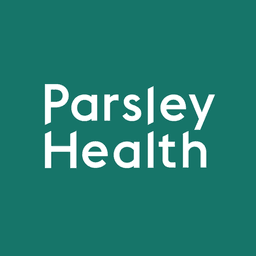When I first found out I was pregnant I drove myself crazy trying to figure out what I could and couldn’t eat to make sure I stayed healthy for the next nine months.
If you’re pregnant or looking to be pregnant soon then you get it. You’ve probably already exhausted yourself by Googling how to have a healthy pregnancy. Google is never a pregnant woman’s friend. I spent too many late nights fretting over mercury levels, the effect of caffeine on a baby and reading the labels on pre-natal vitamins (who knew they weren’t all created equal?!).
Schedule a free conversation with a Parsley Health expert to learn about our comprehensive approach to a healthy pregnancy.
I joined Parsley Health to try to optimize my chances of getting pregnant after the age of 35, the age at which most traditional OB/GYNs start referring to you as a geriatric mother whether you like it or not. Thankfully Dr. Robin Berzin never once referred to me as geriatric, senior, older or any derivation of those adjectives.
I got pregnant within a few months of following Parsley Health diet guidelines and I’ve been following Dr. Berzin’s pregnancy diet ever since. It’s been a lifesaver for me and I know it will be for you too.
The first time I asked what I should be eating Dr. Berzin couldn’t say her answer loud enough. “EAT REAL FOOD!” she practically shouted. She continued: “The simple answer is that you want to be eating real, whole unprocessed foods. Avoid chemicals dyes and preservatives. Focus on protein, greens and healthy fats that nourish baby’s brain. Too many women live in terror of eating foods the wrong foods. They believe they are eating a healthy diet if they avoid foods like raw fish and raw cheese. Avoiding these foods doesn’t grow a healthy baby. That just helps you avoid issues like infections and parasites. That’s important, but the other half of the story is what you do eat.”
Here is what you need on a daily and weekly basis during pregnancy. We call this the Parsley Health Recipe for a Healthy Baby:
- 5 servings of brightly colored (red yellow white and dark green) vegetables daily raw or cooked but not boiled as boiling eliminates so many of the important nutrients
- 2 servings of whole fruits (wild organic blueberries, an organic apple) daily
- 2-4 servings of wild fish and shellfish weekly to supply good Omega 3 fatty acids that build baby’s brain, but avoid fish with high mercury levels like tuna, swordfish and grouper
- 1 serving of nuts and seeds daily like almonds, pumpkin seeds, flax seeds and walnuts to supply fiber (a blood sugar stabilizer) and essential nutrients like magnesium and zinc.
- 1-2 servings of pasture raised organic meat or poultry weekly for the most usable forms of iron
- 1 serving per day of dairy in the form of grass fed butter and pasture raised cow goat or sheep derived unsweetened, pasteurized whole milk or whole milk cheese. If you can’t eat dairy make sure you eat lots of vegetable-derived sources of calcium and take calcium in you prenatal
- 1 serving of whole, gluten free grains or legumes daily like lentils, quinoa or wild rice if you tolerate grains and legumes
